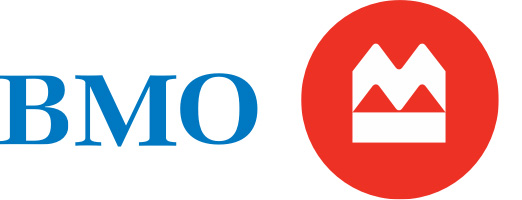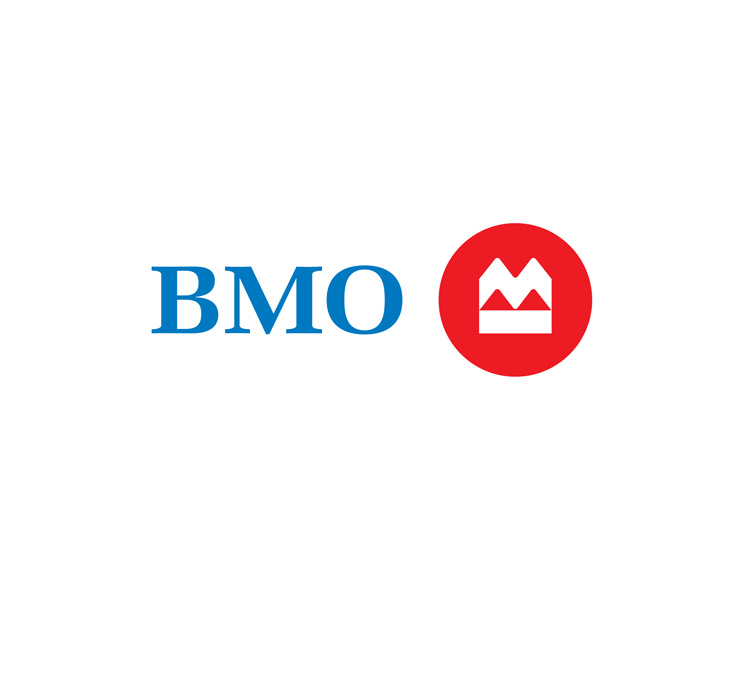
Climate Risk: Regulatory Developments to Watch in 2024
-
bookmark
-
print



This year will feature a flurry of regulations, government guidance, and new incentives regarding climate risk. Among the developments:
-
The U.S. Securities and Exchange Commission (SEC) is expected to finally release regulations related to climate risk and emissions disclosure.
-
Similarly, climate risk and emissions disclosure rules in California, the European Union (EU) and Canada have emerged.
As governments seek to strike a balance between "carrot and stick" to drive decarbonization of their economies, a challenging environment marked by near-term uncertainty is forming for corporate stakeholders. On one hand, more climate-related regulatory requirements may increase the cost of compliance for some companies. On the other, tighter requirements may be aligned with earnest efforts by some companies to increase transparency in their reporting.
Most notably, public companies anxiously await a finalized SEC climate rule intended to guide the disclosure of certain greenhouse gas emissions data, among other mandates. However, existing emissions disclosure rules in California, Canada, and the EU already affect many global companies, indicating a shift is in motion.
Normalizing emissions disclosure rules
Moreover, emissions disclosure is rapidly becoming an important facet of business, rather than a niche consideration. BMO’s 2023 survey of U.S. and Canadian business leaders revealed the growing connection between climate and corporate competitiveness, with over 60 percent of respondents indicating their companies are addressing climate change because “it’s important for my business.”
Emissions accounting and disclosure![]() are becoming the norm. The International Sustainability Standards Board (ISSB) released the first two standards for sustainability disclosure in June of 2023. These standards, referred to as IFRS S1 and S2, represent global movement toward normalizing disclosure of emissions information to investors and others. Indeed, developing an understanding of Scope 1, 2, and 3 emissions informs business decisions, encourages investment, and helps corporations transition to a net-zero world.
are becoming the norm. The International Sustainability Standards Board (ISSB) released the first two standards for sustainability disclosure in June of 2023. These standards, referred to as IFRS S1 and S2, represent global movement toward normalizing disclosure of emissions information to investors and others. Indeed, developing an understanding of Scope 1, 2, and 3 emissions informs business decisions, encourages investment, and helps corporations transition to a net-zero world.
As part of our ambition to be our clients’ lead partner in the transition to a net-zero world, BMO is monitoring the efforts of regulators to increase requirements for emissions disclosure and ready with tools such as Climate Smart to help our customers understand and track financial risks related to climate change. Here is what we are watching in 2024:
Waiting on the SEC
The business community is anticipating the release of climate risk disclosure rules![]() by the U.S. SEC sometime this year The initial rule
by the U.S. SEC sometime this year The initial rule![]() proposed by the SEC in March 2022 would require publicly traded companies to disclose information regarding climate-related risks, including greenhouse gas emissions.
proposed by the SEC in March 2022 would require publicly traded companies to disclose information regarding climate-related risks, including greenhouse gas emissions.
One big question is whether – and to what extent – the SEC will include Scope 3 emissions in required disclosures. For example, the draft regulation![]() would only require Scope 3 disclosure “if material, or if the registrant has set a GHG emissions target or goal that includes Scope 3 emissions.”
would only require Scope 3 disclosure “if material, or if the registrant has set a GHG emissions target or goal that includes Scope 3 emissions.”
Some industry groups have criticized![]() the inclusion of Scope 3, calling it burdensome to small- and medium-sized businesses.
the inclusion of Scope 3, calling it burdensome to small- and medium-sized businesses.
However, many public companies will be required to report this information regardless of how the SEC proceeds because they operate in jurisdictions where disclosure rules including Scope 3 emissions have been finalized, such as California and the EU.
Canadian developments
The SEC regulations will likely influence how other countries move forward with similar rules. Canadian securities regulators may release their own greenhouse gas disclosure regulations following the SEC rule.1 The Canadian Securities Administrators (CSA) has also indicated![]() intent to review ISSB Standards S1 and S2 to potentially adopt similar standards for entities required to report.
intent to review ISSB Standards S1 and S2 to potentially adopt similar standards for entities required to report.
Canada’s 2022 Budget had already directed![]() the Office of the Superintendent of Financial Institutions (OSFI) to require federally regulated banks and insurers to publish climate disclosures, with a phased approach. The first disclosures under OSFI’s Guideline B15: Climate Risk Management are required to be published 180 days post-fiscal 2024. These disclosures include the collection and analysis of client emissions. This key provision sets the stage for non-financial sectors to collect and disclose emissions.
the Office of the Superintendent of Financial Institutions (OSFI) to require federally regulated banks and insurers to publish climate disclosures, with a phased approach. The first disclosures under OSFI’s Guideline B15: Climate Risk Management are required to be published 180 days post-fiscal 2024. These disclosures include the collection and analysis of client emissions. This key provision sets the stage for non-financial sectors to collect and disclose emissions.
California and EU regulations
California
California's Senate Bill 253![]() , known as the Climate Corporate Data Accountability Act, created a mandate for large corporations operating in the state to prepare to report Scope 1, Scope 2, and eventually Scope 3 emissions. The legislation has yet to reach implementation, with a formal set of regulations required to be published by the California Air Resources Board (CARB) by January 2025.
, known as the Climate Corporate Data Accountability Act, created a mandate for large corporations operating in the state to prepare to report Scope 1, Scope 2, and eventually Scope 3 emissions. The legislation has yet to reach implementation, with a formal set of regulations required to be published by the California Air Resources Board (CARB) by January 2025.
Implementation details aside, SB 253 will have an impact not just on large corporations, but also the small and medium-sized companies that comprise the broader business environment. Not only will this regulation create indirect pressure on smaller companies to disclose emissions to remain competitive![]() , but large corporations may exert direct influence on companies in their supply chain to reduce emissions.
, but large corporations may exert direct influence on companies in their supply chain to reduce emissions.
California’s economy is the biggest contributor to U.S. GDP of any state, and it has had an influence on shaping climate regulations globally and nationally. Other states may soon follow in California’s footsteps: New York, Washington, and Illinois have begun to consider similar requirements.
European Union
The EU’s Corporate Sustainability Reporting Directive (CSRD) guidelines came into force in 2023, with emissions and sustainability reporting mandated![]() in 2024 for EU companies with more than 500 employees. Other entity types will be phased in over time from 2025 to 2028.
in 2024 for EU companies with more than 500 employees. Other entity types will be phased in over time from 2025 to 2028.
The CSRD is a significant change to sustainability reporting standards in Europe and expands the pool of companies that will be required to report. The European Commission describes![]() these revisions as necessary to “create a culture of greater public accountability.” This framework is generally agreed to be the most advanced emissions reporting regulation in the world.
these revisions as necessary to “create a culture of greater public accountability.” This framework is generally agreed to be the most advanced emissions reporting regulation in the world.
Notably, subsidiaries of parent companies based outside of the EU must also report under these guidelines – meaning the EU regulations will cover a large portion of the global economy.
Moving toward a stronger disclosure environment
The business imperative to track and disclose emissions does not hinge on the success of any one regulatory measure, and the world is clearly moving toward enhanced disclosure requirements. It is crucial for companies of all sizes to take steps toward understanding their emissions footprint and developing strategies to reducing their environmental impact. BMO’s Climate Smart is a tool to help companies track their own emissions and understand where they come from so they can take more effective action and potentially reduce costs while staying compliant.
For large corporations, disclosures are increasingly mandated, but the cascading effect for small and medium-sized enterprises should not be overlooked. Suppliers and vendors to larger corporations will increasingly need to communicate that they are aligned with these organizations’ climate goals, and that they can be a strong business partner beyond the supply of goods and services.
1 Bickis, Ian. Full disclosure: Companies face emissions reporting mandates even as Canada lags![]() . Montreal Gazette. Dec 18, 2023.
. Montreal Gazette. Dec 18, 2023.
Angela leads climate policy and clean energy workstreams within BMO’s Climate Institute. Prior to joining BMO, Angela led renewables and climate policy effort…(..)
View Full Profile >This year will feature a flurry of regulations, government guidance, and new incentives regarding climate risk. Among the developments:
-
The U.S. Securities and Exchange Commission (SEC) is expected to finally release regulations related to climate risk and emissions disclosure.
-
Similarly, climate risk and emissions disclosure rules in California, the European Union (EU) and Canada have emerged.
As governments seek to strike a balance between "carrot and stick" to drive decarbonization of their economies, a challenging environment marked by near-term uncertainty is forming for corporate stakeholders. On one hand, more climate-related regulatory requirements may increase the cost of compliance for some companies. On the other, tighter requirements may be aligned with earnest efforts by some companies to increase transparency in their reporting.
Most notably, public companies anxiously await a finalized SEC climate rule intended to guide the disclosure of certain greenhouse gas emissions data, among other mandates. However, existing emissions disclosure rules in California, Canada, and the EU already affect many global companies, indicating a shift is in motion.
Normalizing emissions disclosure rules
Moreover, emissions disclosure is rapidly becoming an important facet of business, rather than a niche consideration. BMO’s 2023 survey of U.S. and Canadian business leaders revealed the growing connection between climate and corporate competitiveness, with over 60 percent of respondents indicating their companies are addressing climate change because “it’s important for my business.”
Emissions accounting and disclosure![]() are becoming the norm. The International Sustainability Standards Board (ISSB) released the first two standards for sustainability disclosure in June of 2023. These standards, referred to as IFRS S1 and S2, represent global movement toward normalizing disclosure of emissions information to investors and others. Indeed, developing an understanding of Scope 1, 2, and 3 emissions informs business decisions, encourages investment, and helps corporations transition to a net-zero world.
are becoming the norm. The International Sustainability Standards Board (ISSB) released the first two standards for sustainability disclosure in June of 2023. These standards, referred to as IFRS S1 and S2, represent global movement toward normalizing disclosure of emissions information to investors and others. Indeed, developing an understanding of Scope 1, 2, and 3 emissions informs business decisions, encourages investment, and helps corporations transition to a net-zero world.
As part of our ambition to be our clients’ lead partner in the transition to a net-zero world, BMO is monitoring the efforts of regulators to increase requirements for emissions disclosure and ready with tools such as Climate Smart to help our customers understand and track financial risks related to climate change. Here is what we are watching in 2024:
Waiting on the SEC
The business community is anticipating the release of climate risk disclosure rules![]() by the U.S. SEC sometime this year The initial rule
by the U.S. SEC sometime this year The initial rule![]() proposed by the SEC in March 2022 would require publicly traded companies to disclose information regarding climate-related risks, including greenhouse gas emissions.
proposed by the SEC in March 2022 would require publicly traded companies to disclose information regarding climate-related risks, including greenhouse gas emissions.
One big question is whether – and to what extent – the SEC will include Scope 3 emissions in required disclosures. For example, the draft regulation![]() would only require Scope 3 disclosure “if material, or if the registrant has set a GHG emissions target or goal that includes Scope 3 emissions.”
would only require Scope 3 disclosure “if material, or if the registrant has set a GHG emissions target or goal that includes Scope 3 emissions.”
Some industry groups have criticized![]() the inclusion of Scope 3, calling it burdensome to small- and medium-sized businesses.
the inclusion of Scope 3, calling it burdensome to small- and medium-sized businesses.
However, many public companies will be required to report this information regardless of how the SEC proceeds because they operate in jurisdictions where disclosure rules including Scope 3 emissions have been finalized, such as California and the EU.
Canadian developments
The SEC regulations will likely influence how other countries move forward with similar rules. Canadian securities regulators may release their own greenhouse gas disclosure regulations following the SEC rule.1 The Canadian Securities Administrators (CSA) has also indicated![]() intent to review ISSB Standards S1 and S2 to potentially adopt similar standards for entities required to report.
intent to review ISSB Standards S1 and S2 to potentially adopt similar standards for entities required to report.
Canada’s 2022 Budget had already directed![]() the Office of the Superintendent of Financial Institutions (OSFI) to require federally regulated banks and insurers to publish climate disclosures, with a phased approach. The first disclosures under OSFI’s Guideline B15: Climate Risk Management are required to be published 180 days post-fiscal 2024. These disclosures include the collection and analysis of client emissions. This key provision sets the stage for non-financial sectors to collect and disclose emissions.
the Office of the Superintendent of Financial Institutions (OSFI) to require federally regulated banks and insurers to publish climate disclosures, with a phased approach. The first disclosures under OSFI’s Guideline B15: Climate Risk Management are required to be published 180 days post-fiscal 2024. These disclosures include the collection and analysis of client emissions. This key provision sets the stage for non-financial sectors to collect and disclose emissions.
California and EU regulations
California
California's Senate Bill 253![]() , known as the Climate Corporate Data Accountability Act, created a mandate for large corporations operating in the state to prepare to report Scope 1, Scope 2, and eventually Scope 3 emissions. The legislation has yet to reach implementation, with a formal set of regulations required to be published by the California Air Resources Board (CARB) by January 2025.
, known as the Climate Corporate Data Accountability Act, created a mandate for large corporations operating in the state to prepare to report Scope 1, Scope 2, and eventually Scope 3 emissions. The legislation has yet to reach implementation, with a formal set of regulations required to be published by the California Air Resources Board (CARB) by January 2025.
Implementation details aside, SB 253 will have an impact not just on large corporations, but also the small and medium-sized companies that comprise the broader business environment. Not only will this regulation create indirect pressure on smaller companies to disclose emissions to remain competitive![]() , but large corporations may exert direct influence on companies in their supply chain to reduce emissions.
, but large corporations may exert direct influence on companies in their supply chain to reduce emissions.
California’s economy is the biggest contributor to U.S. GDP of any state, and it has had an influence on shaping climate regulations globally and nationally. Other states may soon follow in California’s footsteps: New York, Washington, and Illinois have begun to consider similar requirements.
European Union
The EU’s Corporate Sustainability Reporting Directive (CSRD) guidelines came into force in 2023, with emissions and sustainability reporting mandated![]() in 2024 for EU companies with more than 500 employees. Other entity types will be phased in over time from 2025 to 2028.
in 2024 for EU companies with more than 500 employees. Other entity types will be phased in over time from 2025 to 2028.
The CSRD is a significant change to sustainability reporting standards in Europe and expands the pool of companies that will be required to report. The European Commission describes![]() these revisions as necessary to “create a culture of greater public accountability.” This framework is generally agreed to be the most advanced emissions reporting regulation in the world.
these revisions as necessary to “create a culture of greater public accountability.” This framework is generally agreed to be the most advanced emissions reporting regulation in the world.
Notably, subsidiaries of parent companies based outside of the EU must also report under these guidelines – meaning the EU regulations will cover a large portion of the global economy.
Moving toward a stronger disclosure environment
The business imperative to track and disclose emissions does not hinge on the success of any one regulatory measure, and the world is clearly moving toward enhanced disclosure requirements. It is crucial for companies of all sizes to take steps toward understanding their emissions footprint and developing strategies to reducing their environmental impact. BMO’s Climate Smart is a tool to help companies track their own emissions and understand where they come from so they can take more effective action and potentially reduce costs while staying compliant.
For large corporations, disclosures are increasingly mandated, but the cascading effect for small and medium-sized enterprises should not be overlooked. Suppliers and vendors to larger corporations will increasingly need to communicate that they are aligned with these organizations’ climate goals, and that they can be a strong business partner beyond the supply of goods and services.
1 Bickis, Ian. Full disclosure: Companies face emissions reporting mandates even as Canada lags![]() . Montreal Gazette. Dec 18, 2023.
. Montreal Gazette. Dec 18, 2023.
What to Read Next.
Cyberattacks on the Farm Are on the Rise: Here’s How to Protect Yourself
Christopher Costain, P.Ag | February 26, 2024 | Agriculture

Pick up any business publication and you’ll likely come across an article about cybercrime and payment fraud, yet this topic is rarely front an…
Continue Reading>Related Insights
Tell us three simple things to
customize your experience






Banking products are subject to approval and are provided in Canada by Bank of Montreal, a CDIC Member.
BMO Commercial Bank is a trade name used in Canada by Bank of Montreal, a CDIC member.
Please note important disclosures for content produced by BMO Capital Markets. BMO Capital Markets Regulatory | BMOCMC Fixed Income Commentary Disclosure | BMOCMC FICC Macro Strategy Commentary Disclosure | Research Disclosure Statements
BMO Capital Markets is a trade name used by BMO Financial Group for the wholesale banking businesses of Bank of Montreal, BMO Bank N.A. (member FDIC), Bank of Montreal Europe p.l.c., and Bank of Montreal (China) Co. Ltd, the institutional broker dealer business of BMO Capital Markets Corp. (Member FINRA and SIPC) and the agency broker dealer business of Clearpool Execution Services, LLC (Member FINRA and SIPC) in the U.S. , and the institutional broker dealer businesses of BMO Nesbitt Burns Inc. (Member Canadian Investment Regulatory Organization and Member Canadian Investor Protection Fund) in Canada and Asia, Bank of Montreal Europe p.l.c. (authorised and regulated by the Central Bank of Ireland) in Europe and BMO Capital Markets Limited (authorised and regulated by the Financial Conduct Authority) in the UK and Australia and carbon credit origination, sustainability advisory services and environmental solutions provided by Bank of Montreal, BMO Radicle Inc., and Carbon Farmers Australia Pty Ltd. (ACN 136 799 221 AFSL 430135) in Australia. "Nesbitt Burns" is a registered trademark of BMO Nesbitt Burns Inc, used under license. "BMO Capital Markets" is a trademark of Bank of Montreal, used under license. "BMO (M-Bar roundel symbol)" is a registered trademark of Bank of Montreal, used under license.
® Registered trademark of Bank of Montreal in the United States, Canada and elsewhere.
™ Trademark of Bank of Montreal in the United States and Canada.
The material contained in articles posted on this website is intended as a general market commentary. The opinions, estimates and projections, if any, contained in these articles are those of the authors and may differ from those of other BMO Commercial Bank employees and affiliates. BMO Commercial Bank endeavors to ensure that the contents have been compiled or derived from sources that it believes to be reliable and which it believes contain information and opinions which are accurate and complete. However, the authors and BMO Commercial Bank take no responsibility for any errors or omissions and do not guarantee their accuracy or completeness. These articles are for informational purposes only.
Bank of Montreal and its affiliates do not provide tax, legal or accounting advice. This material has been prepared for informational purposes only, and is not intended to provide, and should not be relied on for, tax, legal or accounting advice. You should consult your own tax, legal and accounting advisors before engaging in any transaction.
Third party web sites may have privacy and security policies different from BMO. Links to other web sites do not imply the endorsement or approval of such web sites. Please review the privacy and security policies of web sites reached through links from BMO web sites.
Please note important disclosures for content produced by BMO Capital Markets. BMO Capital Markets Regulatory | BMOCMC Fixed Income Commentary Disclosure | BMOCMC FICC Macro Strategy Commentary Disclosure | Research Disclosure Statements





